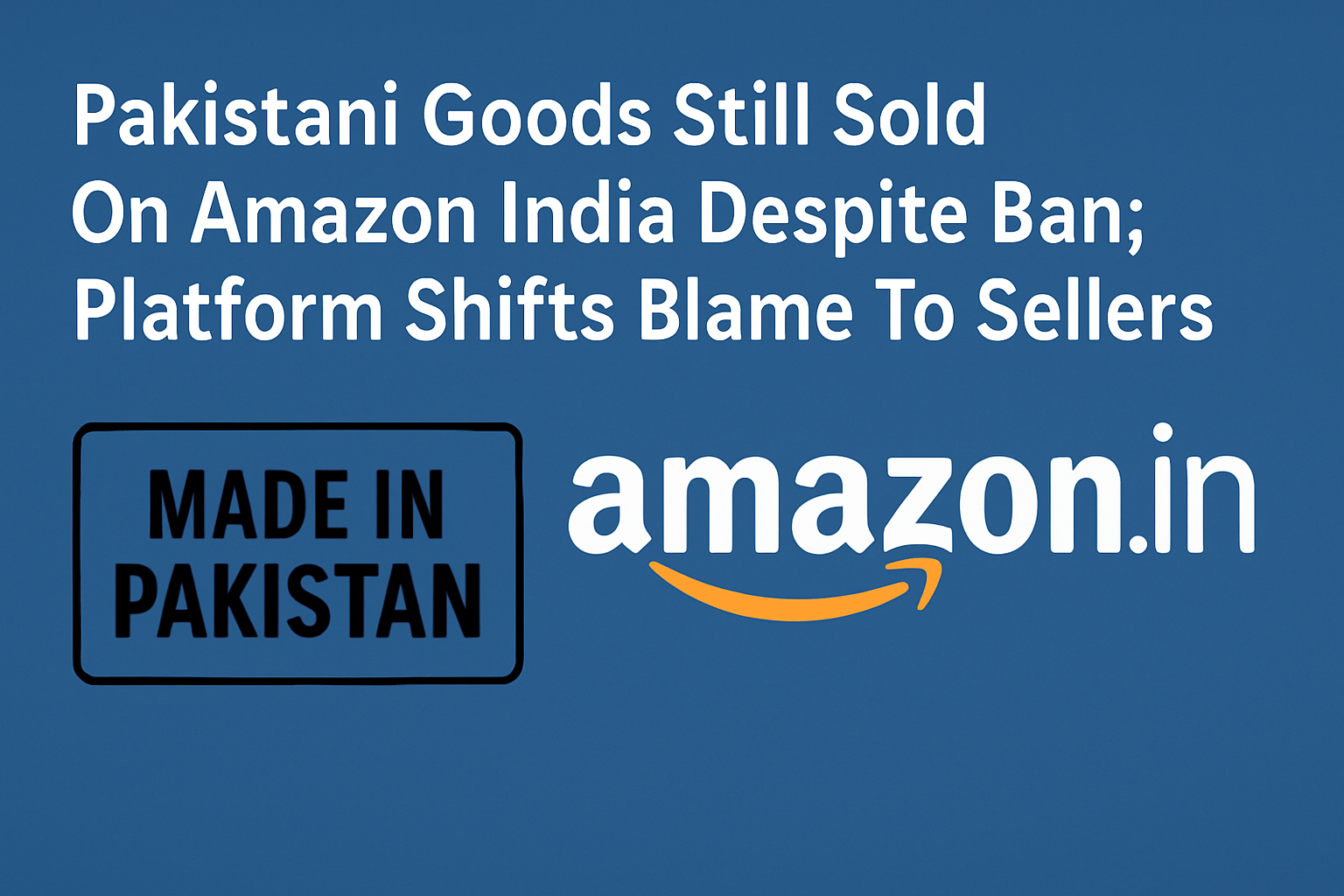
Pakistani Goods Still Sold On Amazon India Despite Ban; Platform Shifts Blame To Sellers
Mumbai: Despite a formal trade ban and scrutiny by the Commerce Ministry, Pakistani-manufactured goods continue to be sold on Amazon India’s platform. While some products were removed after media exposure, the e-commerce giant has deflected responsibility, attributing the violations to third-party sellers.
The controversy erupted after the Free Press Journal (FPJ) published a report on July 1, 2025, revealing that Amazon India was facilitating the sale of cosmetics manufactured in Pakistan. The article triggered an official review by the Commerce Ministry, prompting questions about the platform’s compliance with India's foreign trade regulations.
Commerce Ministry Orders Probe
The report led the Director General of Foreign Trade (DGFT) and the Central Consumer Protection Authority (CCPA) to launch a probe into the matter, following directives from the External Affairs Ministry. The action was initiated after a formal complaint was filed by Nilotpal Mrinal, vice president of the BJP’s Uttar Bharatiya Morcha (Maharashtra unit).
Mrinal, who runs a cosmetics business, stated that he had personally ordered and received two Pakistani products— a beauty cream and a makeup kit —through Amazon India. He submitted both the invoices and product packaging details to authorities as evidence.
“The government has imposed a trade ban for a reason. Allowing products from Pakistan to be sold online undermines national policy,” said Mrinal, expressing disappointment over Amazon's alleged negligence.
Amazon Blames Sellers for Policy Violations
Responding to the controversy, an Amazon India spokesperson clarified that the platform is merely an online marketplace and does not directly sell products. “Amazon.in operates as an online marketplace where independent third-party sellers list and sell their products. We require sellers to list products that comply with applicable Indian laws and Amazon policies,” the spokesperson told FPJ.
Amazon further added that product listings violating Indian laws are removed when directed by relevant regulatory authorities.
An Amazon India official, speaking on the condition of anonymity, revealed that the company oversees more than 16 lakh third-party sellers on its platform. He stated that while Amazon has internal checks and systems, it is impossible to manually review each listing in real-time. “We delist any product that violates our policies, and repeat violators are permanently banned from selling on Amazon,” the executive said.
Experts Question Platform’s Accountability
Despite Amazon’s defense, industry experts argue that greater accountability lies with the platform itself, especially when it involves geopolitical sensitivities like trade bans. “The platform cannot just pass the buck. When you operate at such a massive scale, investing in compliance tools and regular audits becomes non-negotiable,” said a Mumbai-based digital trade analyst.
The sale of Pakistani goods on Amazon India has raised questions about e-commerce regulation, seller verification, and the role of algorithmic filtering. It also sparks a larger debate about the role of global corporations operating within national frameworks.
Political and Consumer Reaction
The issue has sparked political outrage, particularly within nationalist circles who view trade with Pakistan as unacceptable in the current climate. “It's not just about a cosmetic product. It's about standing by our nation’s policies and principles,” said a BJP leader who called for more stringent action against violators.
Meanwhile, consumer rights groups are also calling for greater transparency and a clearer mechanism for flagging illegal listings.
What’s Next?
The Commerce Ministry's inquiry is ongoing, and further action is expected depending on the outcome of the investigation. If Amazon is found guilty of non-compliance, the platform could face hefty fines or tighter government regulations in the future.
For now, the incident stands as a reminder of the challenges posed by open e-commerce ecosystems, where seller responsibility often blurs with platform accountability. As global digital marketplaces continue to expand, so does the need for robust compliance with national laws — something this controversy has brought sharply into focus.


